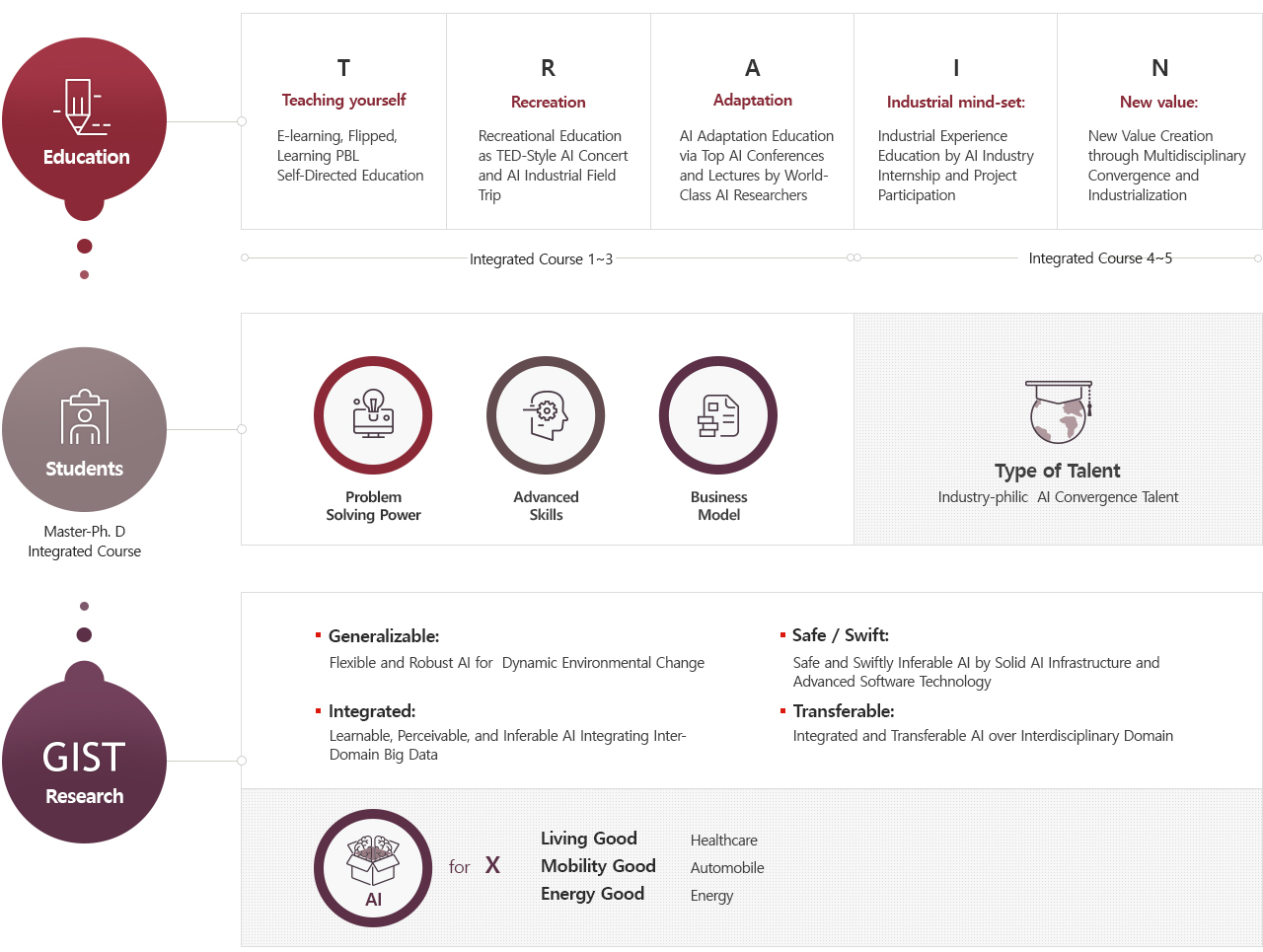
Opening in 2019, the school was particularly noted with the expertise of its instructors and the excellence of its educational programs when it was selected for the national AI graduate school support business, run by the Ministry of Science and ICT.
GIST Artificial Intelligence (AI) Graduate School, pursuing the comprehensive understanding of artificial intelligence in cooperation with researchers from fields of variety, aims to promote outstanding talent of integrating AI for students who are capable of creating new common values developed from innovative solutions to confronted problems in industries, via commercialization and startups that can effectively utilize them.
By 2019,The full-time professors, with a general manager himself, have published 91 papers in AI-related fields and total 146 papers in the last 5 years They add up to 350 impact factor points, demonstrating the global-standard excellence of the AI researches involved. In addition, the full-time professors have produced 42 graduates, 28 in their Master’s and 14 in their Doctorate degrees, in the last 3 years, and have participated in numerous research projects that include expenses in the amount of 7 billion Won in total. The 4 recently invited professors, in particular, have experience of conducting researches in the worldwide AI institutes such as Carnegie Mellon University, Max Plank Institutes, and Allen Institute for AI. They have also been recognized with their research capability, proven with numerous publications in the top AI conference proceedings including CVPR, ICCV, ECCV, CHI, ICML, and ICLR.
The faculty of GIST AI Graduate School consists of 8 full-time professors and 8 adjunct professors, highly experienced in research, startups, and industries. They are experts on research and education and professionals in the fields of traditional AI such as machine learning, deep learning, evolutionary learning, computer vision, data mining, natural language processing, and network reinforcement learning. Also, Their outstanding achievements in these fields have led to prominent advances in integrated AI technologies regarding healthcare, automobile, and energy.
